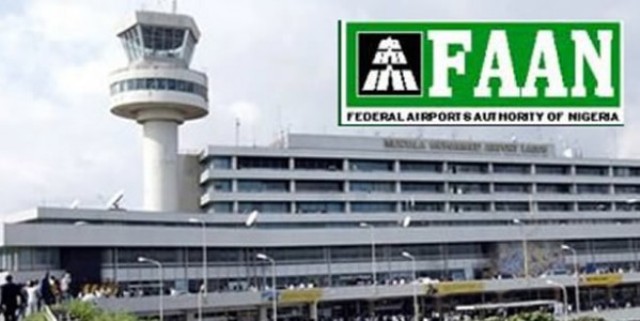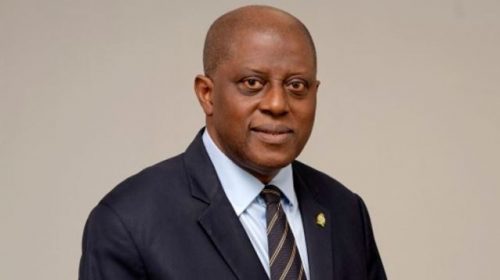That FAAN may not go bankrupt

The challenge facing the Federal Airports Authority of Nigeria (FAAN) is how to recover billions of naira owed to it by the airlines so that it may continue to improve its infrastructure for better service delivery.
The huge unpaid debts have become the tourniquet stopping the agency’s infrastructural growth and flow of cash.
As of the last count, NewsGazette learnt about N10 billion is being owed to the agency.
It would be recalled that at a recent public hearing in Abuja, the minister of aviation, Mr. Hadi Sirika revealed that local airlines’ total debts to the aviation agencies stood at N22 billion.
The breakdown shows N19.37 billion and $6,993,284 million (N2.7 billion) as unremitted ticket sales charge (TSC), and cargo sales charge (CSC) collected on behalf of the Nigeria Civil Aviation Authority (NCAA) and its sister agencies.
FAAN, it should be noted is self-sustaining; it receives no subvention from the federal government and depends on its internally generated revenue for its entire operations.
Unfortunately, the debtors are not only customers, but the reason for FAAN’s existence in the first instance. As such, it has become herculean to take drastic action against them for doing so is tantamount to wiping off domestic operators in the country.
Occasionally, FAAN would withdraw its services to debtor airlines and disrupt their operations at airports in the bid to recover debts.
FAAN deserves sympathy because its operational costs have increased sharply due to the prevailing global situation occasioned by the coronavirus pandemic that has affected the aviation industry greatly.
Speaking recently in Abuja on behalf of FAAN, the director general of the Nigerian NCAA, Mr. Musa Nuhu appealed to the national assembly to assist the authority carry out its statutory responsibilities.
Nuhu, who was vague about the type of assistance he wanted for the agency, said it needed more support to tackle infrastructure deficit at many of the 23 airports across the country.
“FAAN really needs help to maintain the facilities at the airports. From what I have seen during the process to develop protocols for COVID-19; I saw how difficult it was for them to maintain basic equipment.”
Former managing director of FAAN, Mr. Richard Aisubeogun, also made a case for FAAN saying there is the need for funding airport infrastructure and that the agency needs every available kobo.
“You have to take airport infrastructure to the peak if you want to encourage the flow of Foreign Direct Investment (FDI).”
“We need to tackle moribund aviation infrastructure. It will give you leverage even when you want to commercialise or privatise or concession the airports in whatever terms you want to use.
“It will give you leverage for strong negotiation power because you have invested in the infrastructure and the equipment of the entire aviation sector industry.
“Unfortunately, government is limited by funds and there are so many things competing with the available resources. Equipment at the airports are aging. The airport authority needs every kobo to be re-injected back into the infrastructural upgrade of the airports,” he said.
The House of Representatives committee on aviation also expressed concern about the deliberate withholding of levies collected on behalf of FAAN by some airlines.
The lawmakers were put in the picture when the managing director of the agency, Capt. Yadudu had at an interactive session with the committee at the national assembly recently appealed to them to intervene.
Chairman of the committee, Mr. Nnolim Nnaji expressed concern that one of the indigenous airlines was yet to remit to FAAN the sum of N13 billion collected on behalf the authority.
Nnaji who described the attitude of some indigenous airlines as regrettable assured that the committee would look into the matter with a view to resolving it so that the authority can carry out its statutory duties of providing world class services to air travellers unhindered.
He further stressed that it amounts to a breach of trust by some airlines if they could collect charges on behalf of the agency and failed to remit the money appropriately.
To address the numerous financial challenges, the minister proposed Aviation Development Fund to the sector to take care of capital intensive projects.
He explained that the Fund which will attract friendly interest rate will be used to provide better safety equipment at the nation’s airports, better passenger comfort and in general, improve the aviation sector which he said currently suffers from inadequate funding.
In the first month of 2020, FAAN lost N18.9 billion to the impact of the coronavirus disease.
The agency’s director of finance and accounts, Mrs. Nike Aboderin in her presentation at the a stakeholders’ meeting held in Lagos said the agency lost N17.5 billion in aeronautical charges in 23 weeks and another N1.4 billion in non-aeronautical charges from April to June, 2020.
Compared to 2019, she said only 8.7 person of FAAN’s non-aeronautical revenue charges were collected from April to June 2020.
To shore up its revenue base, FAAN recently carried out upward review of the passenger service charge from N1000 to N2, 000 per passenger from September 1, 2020, but the airlines protested against the hike.
Yadudu said the agency had not increased the PSC since 2011, despite the huge capital investments at the airports.
“We seem to be the outcast in the aviation family. I see where airlines increase their charges and no one raises an eyebrow, but when FAAN does everyone starts talking about how it affects market and business forgetting that the passenger charge is borne by passengers not the airline. Timing is relative; there is no such thing as a good or bad time for this,” he said.
He said the federal government had continued to make massive investment in the aviation sector.
“Government’s effort to renew the nation’s dilapidated airport infrastructure and ensure safety in the industry has come at a very huge cost.
“Airport management is capital intensive. FAAN has not increased PSC since 2011, despite all the huge capital investments at our airports.
“The current PSC charge of N1, 000 is no longer realistic as it does not correlate with realities of cost related inflation rate which the CBN has put at 12.82 per cent.
“Besides, until late 2019 FAAN was collecting the naira equivalent of PSC at an official rate of N305.50 – N344.38 to a dollar when airlines were collecting at subsisting market rate of about N362 to a dollar.
“It should be noted that ICAO ‘s recommendation in Doc. 9562 stipulates that revenue generated by airports be transparently re-invested wholly in operating and developing airport facilities.
“It is also worthy of note that the federal government is increasing its direct deduction from FAAN to 40 per cent from 2021. With such deduction, the Authority will have a shortfall of over N16 billion on overhead cost.
“It has, therefore become imperative to review the PSC from N1000 – N2, 000 per passenger.
“We therefore implore stakeholder, airport users and the general public to bear with us as the FAAN is laden with so much overhead cost of operation,” he said.
However, some stakeholders blame FAAN for the humongous debts owed to it by airlines and other organisations operating at the airports.
According to them, the agency has not been up and doing in its revenue collection drive hence the mountain of debts.
After dealing with the current debt situation, FAAN, is believed would ensure timely collection of remittances from airlines instead of waiting for it to accumulate to the extent that it becomes an issue.
By Ime Akpan







Leave a Reply